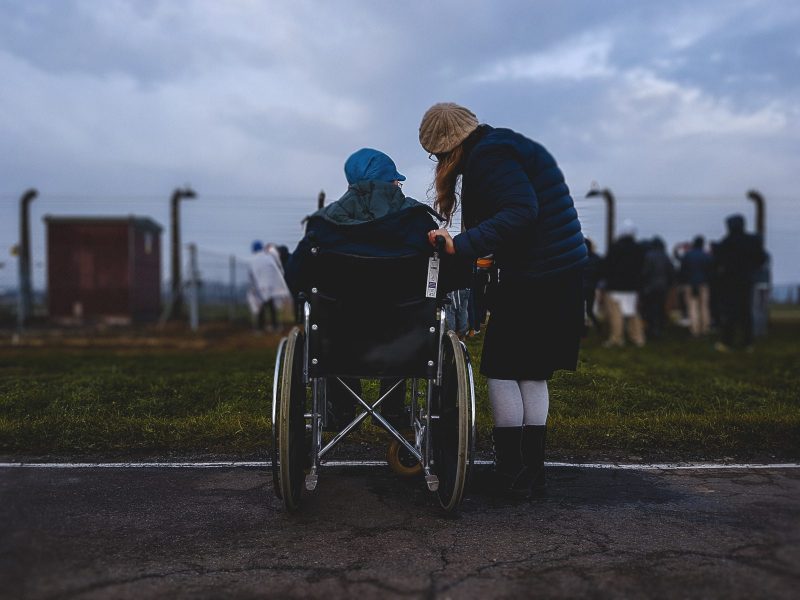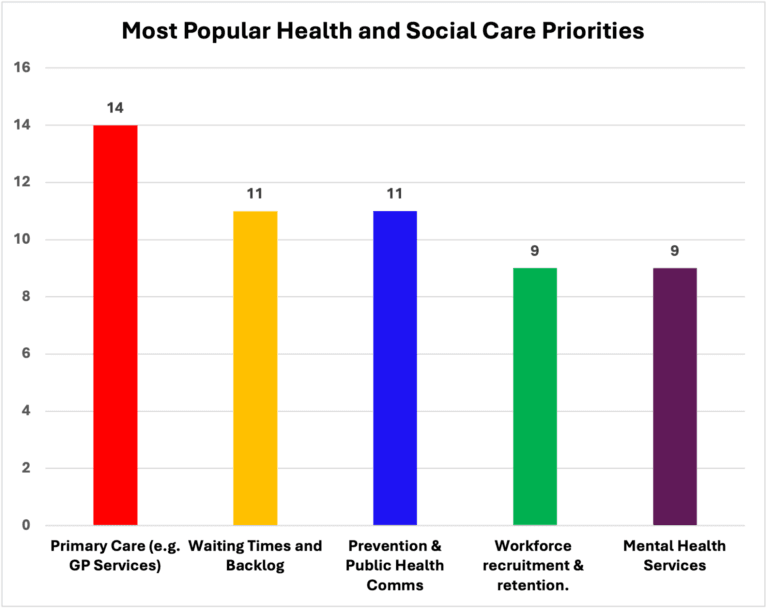Faith groups—a solution to wrap around healthcare

Several themes have come out of last week’s survey on health and social care. A predominant one is the way in which the NHS can be helped by local faith providers coming alongside people to help them live healthy lives, and help them to navigate the often confusing system (see case study, below). One thing is clear: faith groups are uniquely placed to provide wrap-around services at a time when the NHS is at its most stretched.
Case study
Shobna* is an older widow, and her family don’t live nearby. Because she is undiagnosed dyslexic, she used to rely on her husband to read GP letters and prescriptions. Through regular visits from a local faith volunteer, she is now able to understand how to live with her long-term health conditions, and to understand diagnoses, prescriptions and treatment plans. She also feels more connected to her community as a result.
* Not her real name

What matters in health and social care?
We have now launched three brief surveys as part of our run-up to the General Election 2024 (What Matters To You?)
There will be time to respond to all surveys as they are launched – one a week – and we will keep the polls open beyond July 4th.
So if you haven’t responded to either poll, you may do so HERE.
So, what matters?
We asked people to name their three top priority policy areas for health and social care. The themes were all quite evenly distributed, but the most popular was Primary Care, followed by Waiting Times and Backlog, and Prevention with Improved Public Health Communication.

Free responses
A few people spoke about the way in which faith groups can access the hard-to-reach. A number mentioned social prescribing, and some spoke about the importance of funding faith organisations to educate people around the issue of healthy lifestyles. Chaplaincy was also mentioned more than once – to have a compassionate listening ear when patients are facing life-changing situations. Strong interpersonal relationships can help in many cases, particularly if someone is at risk of self-harm.
Several also spoke of the value of delivering Creative English for Health in their community.
There has long been a tradition of volunteering in hospitals, to visit patients, for example. We should extend the chaplaincy function of hospitals.
Through constructive engagement, increase awareness of what the faith sector can offer in terms of activities and support where people can be referred through social prescribing.
A ‘Know your health’ campaign get schools, colleges and workplaces to get everyone to know their health numbers and what they need to do to improve.
Currently it seems that GPs & nurses only have time to treat symptoms; faith group teams can treat people in their wider context.
Creative English has been a very successful way of helping people in my community look after their health.
There are still a lot of taboos around getting support for mental health in my community which must be addressed. People talking about their experiences openly is a good first step.

About David Simmons
Senior Project Coordinator
Having spent the first years of his professional life in the City of London, David has spent the past 19 years working in the Voluntary Sector, as a children and family practitioner, and latterly as a social researcher, for which he was awarded a PhD in 2013 with the University of Greenwich.
He runs his own company, Absolute Communication, and has worked with Cinnamon Network, Eido Research, Future Perfect, REACH Community Projects, Refresh in Weymouth, Yeovil 4Family, and Sussex Police, among others.
David is also a musician, singer, songwriter, and actor, having co-produced three musicals, and has also produced a one-man version of A Christmas Carol by Charles Dickens.


